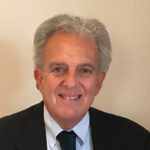There are times when an insurer asks for an attending physician statement (APS) and it truly becomes an impossible task. An underwriter relies on an APS to give detailed doctor’s information crucial to an underwriting decision. Having the most complete picture of an applicant’s health goes a long way toward being able to offer the most competitive rate and knowing there are no surprises lurking in an accurate risk assessment. There are times, though, when an APS isn’t that easy to obtain (or even just about impossible) and a “Plan B” has to go into effect.
There are all sorts of legitimate reasons an APS can’t be completed: A doctor may have retired and closed his practice. An applicant for insurance may not properly recall his doctor’s name or address. A doctor may not have kept records past a certain date or may have merged with another medical practice, making older files difficult to locate. An applicant’s files may have something personal or confidential in them which causes his doctor’s office to refuse to release them to a third party. And finally, although insurers pay quite reasonable amounts for the time and expense necessary for retrieving records, some offices insist on astronomical amounts to complete such a request.
After a number of good-faith efforts to get medical information, both the broker/agent and insurer need to focus on ways to gather the same information from other sources. Inordinate delays can result in a case going to the competition or making the applicant impatient enough to change his mind about the whole process going forward. Time is always of the essence in policy placement.
The age of the information is sometimes relevant, too. For instance, cancer or another condition that no matter what the pathology report showed would be standard at this point. Evidence of proper follow-up care could also make an original report not valuable enough to wait on. Good enough detail in succeeding notes may give the underwriter all he needs to know without chasing the original report, or summaries from other consultants seen may often give enough information to proceed.
If a hospital report is what is missing, notes from a doctor’s follow-up visit are often detailed enough not to wait for the hospital’s confirmation. Many times a consultant from another field may have the pertinent information. For example, a kidney specialist may have summed up everything that was being waited on from an oncologist; in fact, consultations are notorious for repeating past medical history almost ad infinitum. In rare circumstances a hospitalization may sum up the pertinent medical history that cannot be obtained from an outside physician’s office.
A letter from a physician can help to clarify if he specifically addresses the condition or history in the present, minimizing the need for the original notes. When a physician’s office asks for unreasonable fees, a reminder from the proposed insured that this is important to him as a consumer—much less as a patient—will encourage the office to be more cooperative.
In cases in which the original information is confidential and a doctor does not want to release it, either a confidential summary from the physician or a one-to-one talk with the insurer’s physician may be the solution.
Insurers know that if they waive an APS and issue a policy their right to go back and get it after the fact is lost. Short of proving fraud, a company would prefer to have all the information it needs at its disposal before offering or issuing a policy.
For those times when an APS just seems too impossible to obtain, both an insurer and agent must work together to see if new information or information already available may be enough for an “as-is” decision.



























